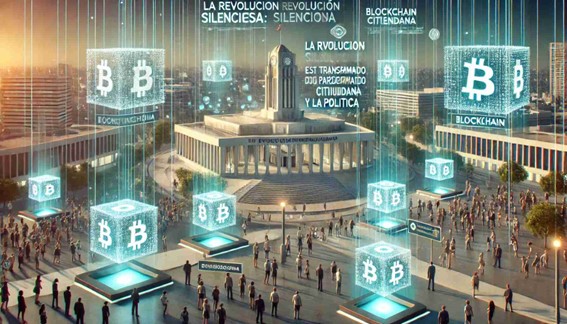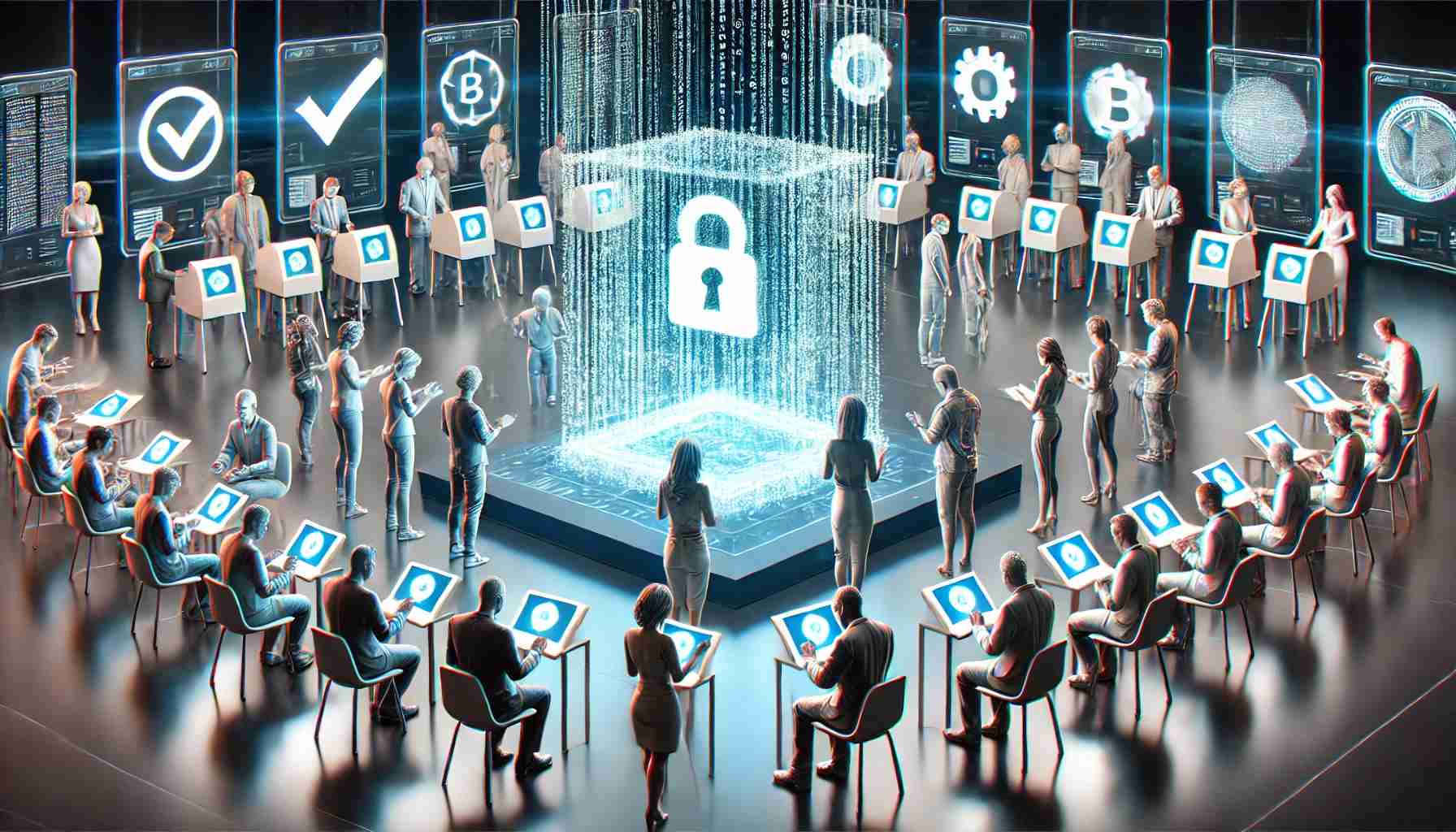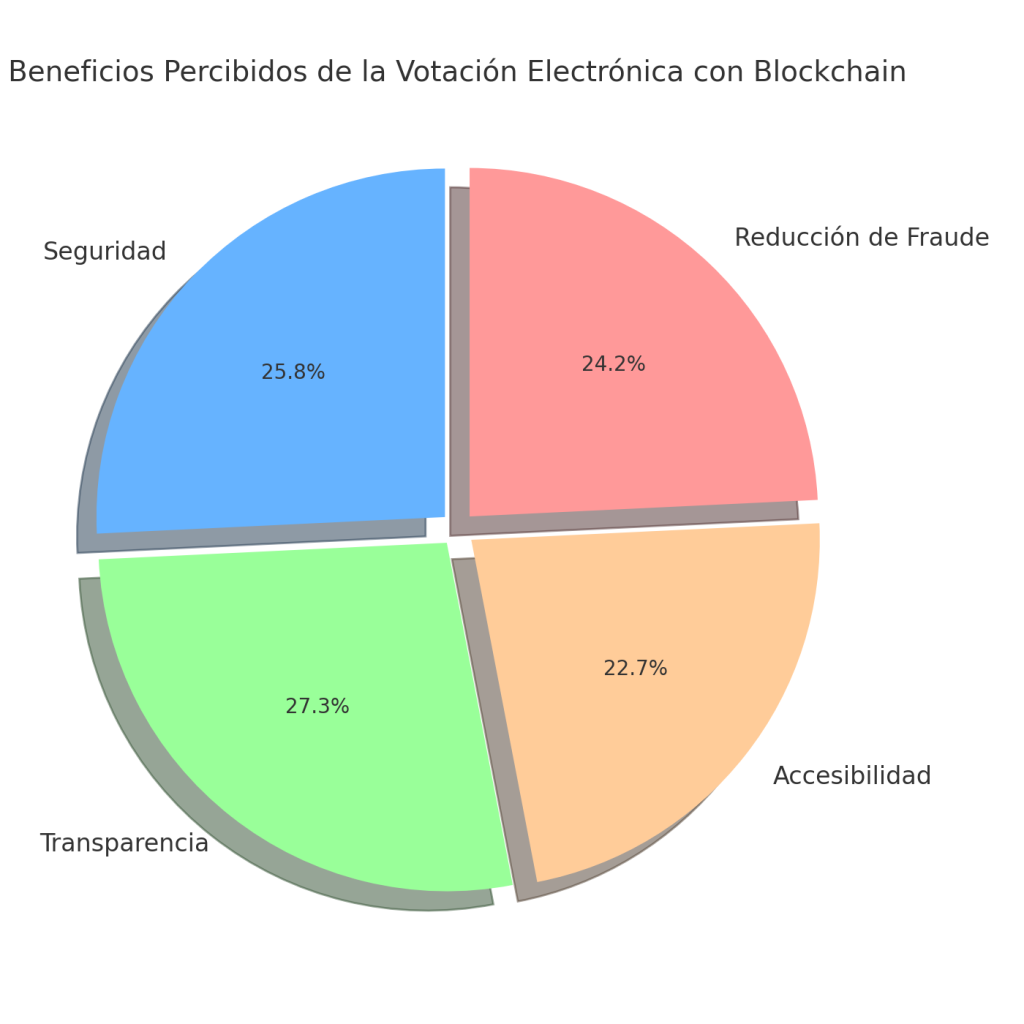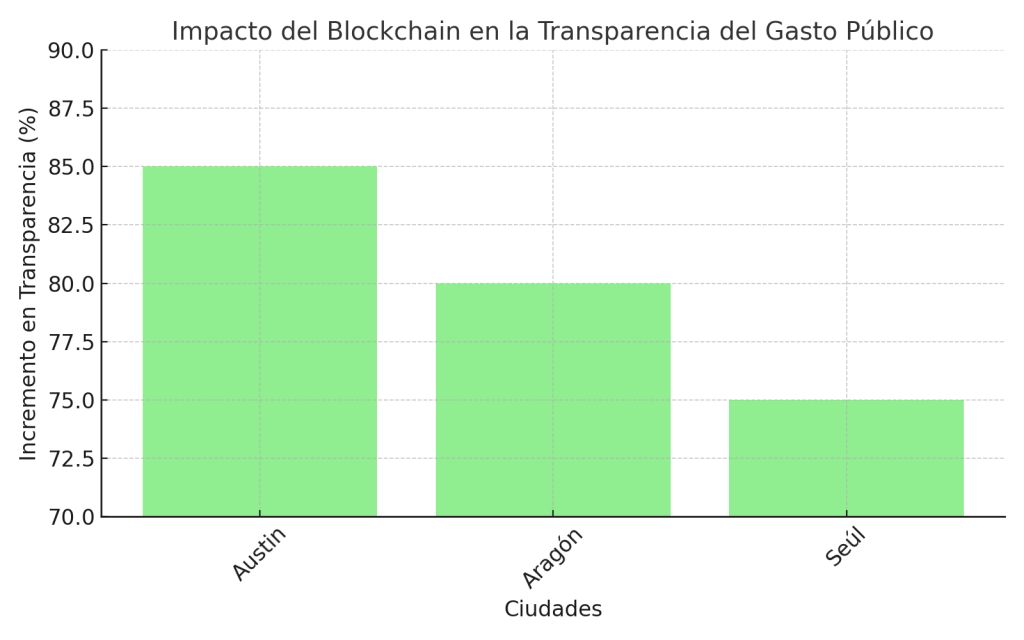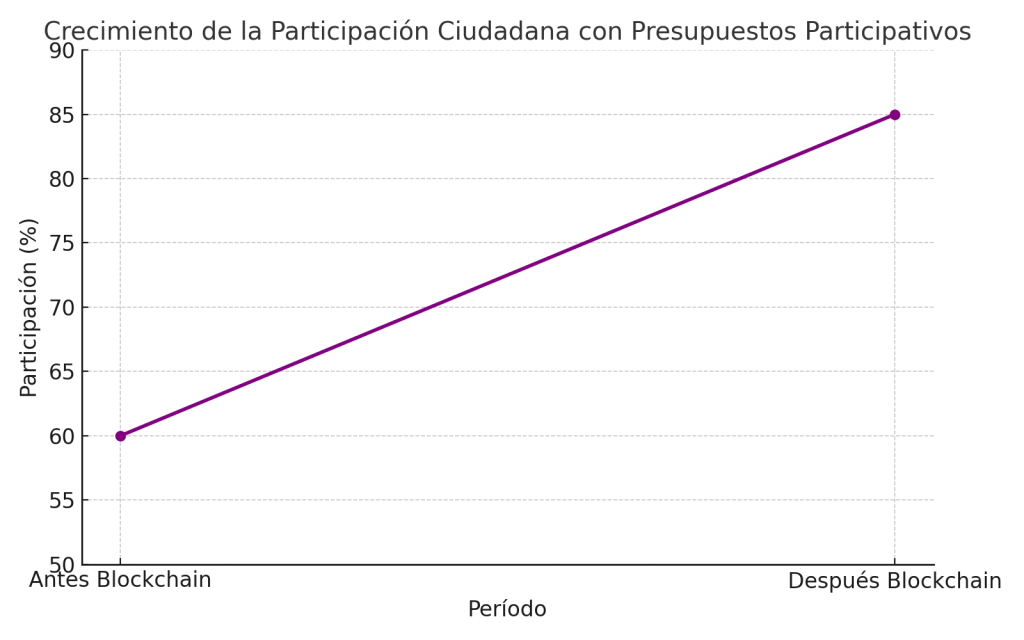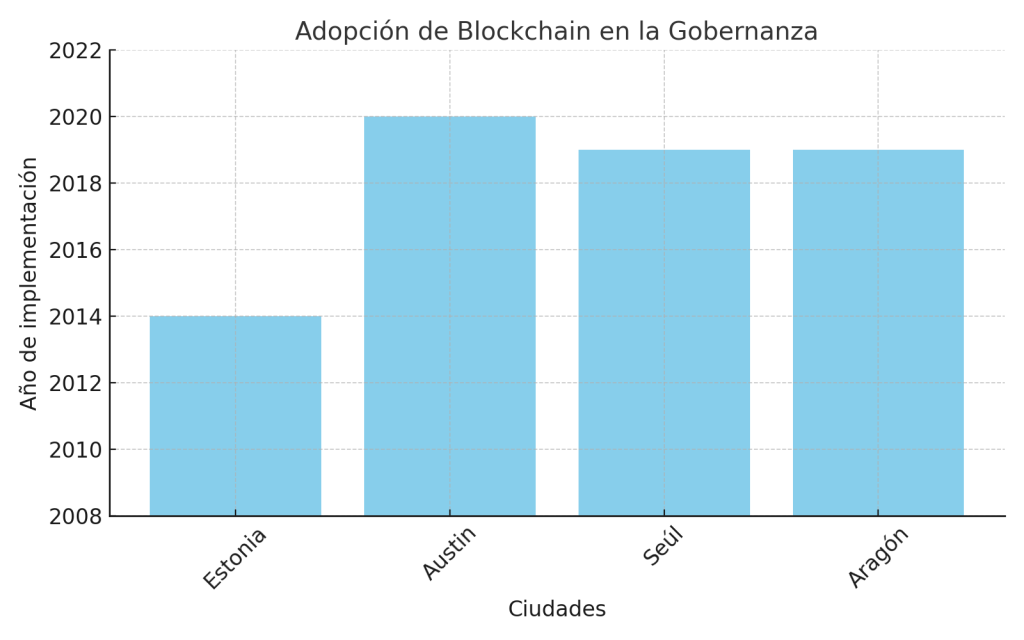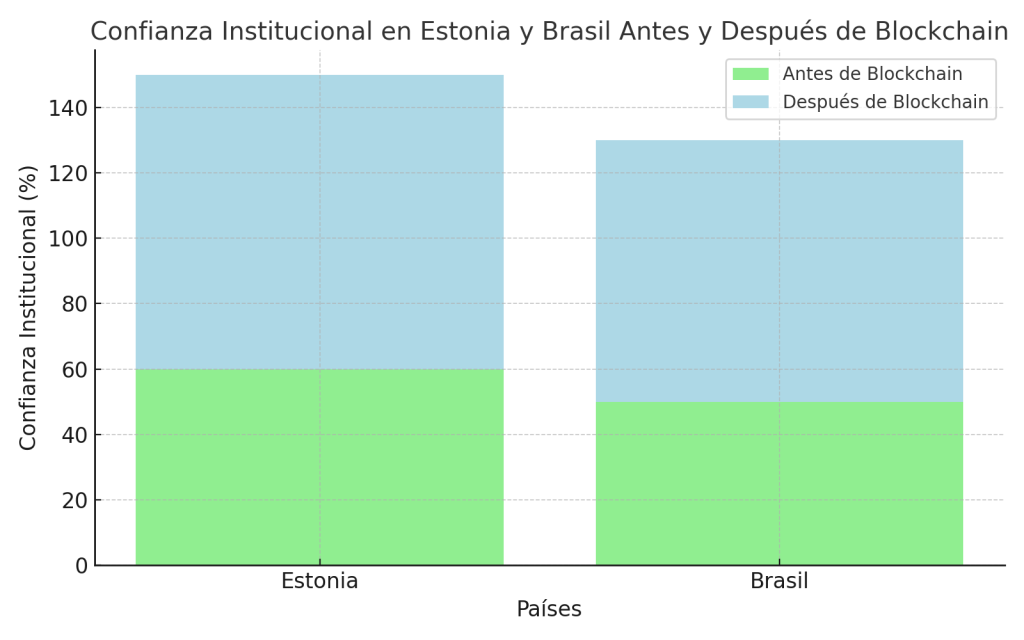We are living in an unprecedented era, where technology is not only changing the way we communicate or consume, but also how we communicate with each other. we interact with our governments. In this context, blockchain stands out as one of the most promising and transformative technologies. Although initially associated primarily with finance and cryptocurrencies, its potential now extends far beyond that. Blockchain is bursting into sectors such as the governance, politics and citizen participationoffering new forms of interaction that guarantee greater transparency, security and efficiency. This is the beginning of a silent revolution, a revolution that promises to empowering citizens and profoundly transform democratic institutions.
What is blockchain and why is it key to democracy?
Blockchain is, in essence, a decentralised and distributed database which is constructed in blocks of information linked together in an immutable way. This "ledger" is not controlled by a central entity, which means that all participants in the network can verify transactions and records. Each block is connected to the previous one, which guarantees the integrity and security of the information contained.
Now, why is blockchain so important for democracy? Because it guarantees three fundamental aspects:
- TransparencyWith blockchain, every transaction or recorded event is accessible and verifiable by all participants in the network. This means that citizens can see exactly how public resources are managed, how elections are conducted and how important decisions are made.
- SecurityBlockchain : Blockchain is highly resistant to attack. Due to its decentralised structure, any attempt at manipulation or hacking would require control of most of the nodes in the network, which is extremely difficult.
- ImmutabilityOnce a transaction is recorded on the blockchain, it is virtually impossible to alter it. This eliminates the risk of fraud or manipulation after the fact.
These three pillars, when applied to the democratic sphere, create a much more reliable, accessible and efficient system, where citizens can have direct control on how they are governed.
Blockchain in e-voting: a democratic revolution
One of the most exciting and promising uses of the blockchain is in the electronic voting systems. Today, traditional voting systems, while effective, are not without their challenges. From logistical problems to fraud and mistrust, elections in many countries face a number of obstacles that could be solved through the implementation of blockchain.
With blockchain, each vote cast is recorded in a block, ensuring that it cannot be modified or deleted. In addition, every citizen can verify that his or her vote has been correctly recorded, which increases confidence in the electoral process. This represents a radical change in the way we understand democracy.
Estonia: World leader in e-voting
Estonia has led the charge in implementing blockchain in electronic voting. Since 2005, the country has allowed its citizens to cast their ballots online, and in 2014 went a step further by integrating blockchain into this system.. The results have been impressive. Citizens can vote from the comfort of their homes, eliminating logistical barriers and making the process more accessible and reliable.
This system not only improves citizen participation, but also significantly reduces the costs associated with organising elections. Estonia has shown the world that blockchain is not just a promise for the futurebut a reality that is already transforming the way we interact with our governments.
Transparency in public spending: blockchain as a tool for citizen control
Another major challenge in today's governments is the transparency in public spending. In many countries, opacity in the management of public resources has generated distrust among citizens, eroding the credibility of institutions. Blockchain is changing this picture by enabling detailed tracking of every transaction, ensuring that every penny of public money is spent in a transparent manner.
Austin, Texas: pioneering transparency with blockchain
The city of Austinin Texas, has been one of the early adopters of blockchain to improve the transparency in the management of public contracts. The city has implemented a system that uses blockchain to track social service contracts, enabling citizens to check in real time how public funds are being spent. This initiative has significantly increased the public confidence in local government, and has served as a model for other cities interested in improving efficiency and transparency in public management.
Blockchain not only makes it possible to track public funds, but also facilitates the creation of participatory budgetswhere citizens can propose and vote on what projects public money should be spent on. This new way of interacting with the government's budget increases citizen participation and empowers communities to make decisions that directly affect their environment.
Adoption of Blockchain in Governance
The adoption of blockchain in governance is becoming more and more common, especially in cities and regions seeking to improve the transparency, efficiency and security in their administrative and procurement processes. Here are some outstanding examples of cities and regions that have implemented this technology:
Seoul, South Korea: Smart city and blockchain
Seoul has implemented blockchain as part of its initiative to become a smart city. Since 2019, the technology has been applied in services such as public contract administration, voting and digital authentication. Seoul's goal is to improve the transparency and efficiency in government processes, allowing citizens to verify decisions in real time. This adoption has reduced the time and cost of awarding contracts and increased public confidence.
Aragon, Spain: Innovation in Public Procurement
At Aragonblockchain has been used since 2019 to improve the transparency and traceability in the selection of suppliers for public contracts. The autonomous community implemented a hybrid architecture that combines Ethereum y HyperledgerThis has led to the improvement of more than 25 contracts to date. This system has been instrumental in ensuring security in tendering processes and has increased efficiency in the management of public resources.
Digital identity: a key to citizen inclusion
One of the most powerful applications of blockchain in citizen participation is in the creation of secure digital identities. For many citizens around the world, accessing basic government services or participating in political life is complicated by the lack of traditional identity documents. Blockchain is opening the door to a new era where every person, regardless of his or her situationYou can have a secure, portable and reliable digital identity.
Refugees: a new hope through blockchain
An inspiring example is the work being done by the UN with blockchain to provide digital identities to refugees. These individuals, who are often in extremely vulnerable situations, may have difficulty accessing essential services such as healthcare, education or the ability to vote. Blockchain allows them to create a digital identity that is not tied to a country or physical document, facilitating their inclusion in democratic processes and improving their quality of life. This is a breakthrough that could change the lives of millions of people around the world!
Smart contracts and automated governance: a more efficient and fairer future
The smart contracts are one of the most exciting applications of blockchain in the field of governance. These contracts are self-executing programmes that are stored on the blockchain and are automatically triggered when certain predefined conditions are met. In terms of governance, this means that many bureaucratic processes can be automated and optimisedreducing human error and eliminating corruption.
Social benefits: automated and transparent payments
One potential use of smart contracts is the distribution of social benefits. Instead of relying on complex bureaucratic processes, smart contracts can ensure that payments are automatically made to those who meet the established requirements. This not only improves the efficiency of the process, but also ensures that each person receives exactly what he or she is entitled towithout delay or misunderstanding.
Some governments are already exploring the use of smart contracts for the issuing of licences, distribution of agricultural subsidies and allocation of funds. These developments represent a radical transformation in the way public affairs are conducted, and suggest a future where governments can be fairer, more equitable and more efficient.
Overcoming the challenges of blockchain: an opportunity for growth
Like any emerging technology, blockchain faces certain challenges. However, each of these obstacles presents an opportunity for improvement and further progress. The three main challenges that blockchain must overcome are:
- ScalabilityAs more people and governments adopt blockchain, it is crucial that the technology is able to process millions of transactions quickly and smoothly. Scalability solutions are already under development, and innovation continues making great strides forward.
- Privacy: Although the blockchain is transparent, it is also necessary to protect the privacy of personal data. Fortunately, technologies are being developed that combine the best of both worlds: transparency and privacy.
- AdoptionFor blockchain to reach its full potential, more governments, institutions and citizens need to embrace the technology. As more countries follow the example of Estonia, Austin and other pioneers, the use of blockchain will grow exponentially.
The democracy of the future is here: Blockchain is the way!
From all of the above, we can determine that blockchain is not only an innovative technology; it is the pillar of a new era of citizen and political participation. The transparency, security and immutability that it offers are building a more democratic inclusive, efficient and fair for all. As we overcome the challenges and embrace the benefits, we will see how this quiet revolution profoundly transforms the relationship between citizens and their governments.
The future of democracy is bright with blockchain, and we are closer than ever of a political system in which the citizens will have more power and control than ever before. The vision of a truly participatory and accessible democratic system is not only possible, it is about to become a tangible reality thanks to blockchain. The transparency that this technology brings, combined with the ability of citizens to interact directly with their governments, is creating a system more resistant to corruption y open to public scrutiny.
Empowering citizens: a new era of democratic participation
Imagine a future where any citizen, regardless of geographic location or socio-economic status, has the ability to actively participate in decisions that affect their community. From voting in local and national elections, to deciding how public funds should be spent, the voice of each individual will have a significant impact.
Blockchain is already making this possible by providing accessible, secure and transparent tools. Instead of relying on a small group of representatives, citizens can participate more directly and continuously in decision-making processes. This is a revolutionary change in the way democracy works!
Use cases for direct citizen participation
There are already projects under development in several cities around the world exploring how blockchain can enable citizens to casting votes on community decisions o propose and finance initiatives. In places like Taiwancitizens have started to use decentralised platforms to public discussionswhere anyone can express their opinion on public policy and, in turn, the resulting decisions are recorded on a blockchain, ensuring the transparency and authenticity of the process.
This model can be scaled up globally, facilitating interaction between citizens and their governments in a way that allows decision-making power to be truly distributed. The era where citizens only participate in democracy during elections every few years is coming to an end.
The transformative power of blockchain in institutional trust
Mistrust of institutions has been a recurring problem in many countries, especially where citizens perceive little transparency or where corruption is a systemic problem. Blockchain is breaking down these barriers, since the full transparency it offers obliges governments and institutions to be accountable of every action and decision taken.
As blockchain is implemented in more areas of governance, institutions will not only become more transparent, but also more efficient y resilient. For example, corruption, which often flourishes due to the lack of traceability of funds, will find in the blockchain a insurmountable brake. Every transaction, every contract, every budgetary decision will be verifiable by any citizen, removing the shadows where malpractice could previously hide.
Regaining public confidence
One of the great challenges facing modern democracies is to regaining public confidence. Citizens, in many cases, feel disconnected from their governments, often due to opacity or lengthy bureaucratic processes that make participation and accountability difficult. Blockchain is a historic opportunity to close that gap. By empowering citizens with verifiable information and direct access to decisions, institutions can regain the trust and respect of the people they serve.
Blockchain and global inclusion: no one is left out
One of the most exciting aspects of the blockchain is its ability to including those who have been traditionally excluded of democratic and financial systems. Through digital identities secure, those who live in remote areas or who do not have access to formal documentation can now play an active role in their societies.
In many developing countries, millions of people are unable to participate in elections or access public services because they lack access to public services. official identification. Blockchain solves this problem, allowing the creation of digital identities that do not rely on physical documents, but rather are securely anchored on a blockchain. This technology offers not only democratic inclusion, but also access to new economic opportunities and social.
Impact Example: Africa and Citizen Empowerment
In countries in Africa, where many people do not have access to identity documents or bank accounts, blockchain is being used to providing access to essential services. Blockchain-based platforms are enabling these citizens, previously invisible to the system, to participate in democratic processes.The blockchain is a clear example of how blockchain is not only transforming advanced democracies, it is also transforming the way in which people can access credit and conduct financial transactions without the need for traditional intermediaries. This is a clear example of how blockchain is not only transforming advanced democracies, but is also provides opportunities for the world's most marginalised people.
A bright future for democracy
Ultimately, the future of democracy is being shaped by technologies like blockchain that promise a more transparent, secure and inclusive system. This is not just a futuristic dream; it is a reality that is already taking shape in many parts of the world, from Estonia to Austinand it is clear that this is not a passing fad. Blockchain is here to stayand its impact on citizen participation and politics will only continue to grow.
The potential of blockchain is immense, and governments that embrace it will be at the forefront of a new democratic eraAn era where citizens are not just spectators, but major players in the governance of their countries. With blockchain, every vote counts, every transaction is visible and every citizen has the power to take an active part in decision-making that affect their lives.
The silent revolution is underway, and with blockchain, the future of democracy has never been brighter!

